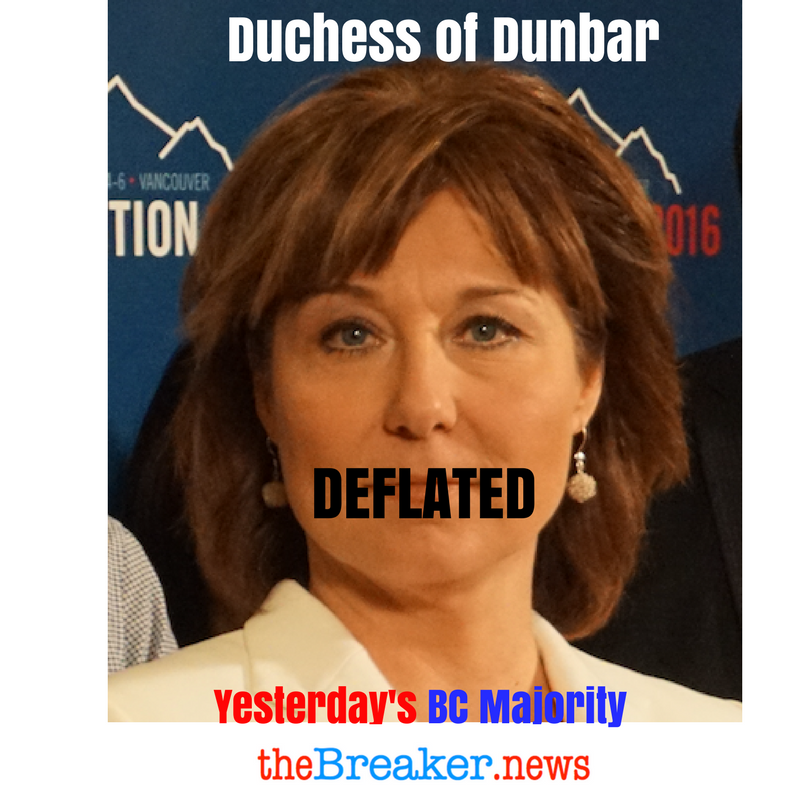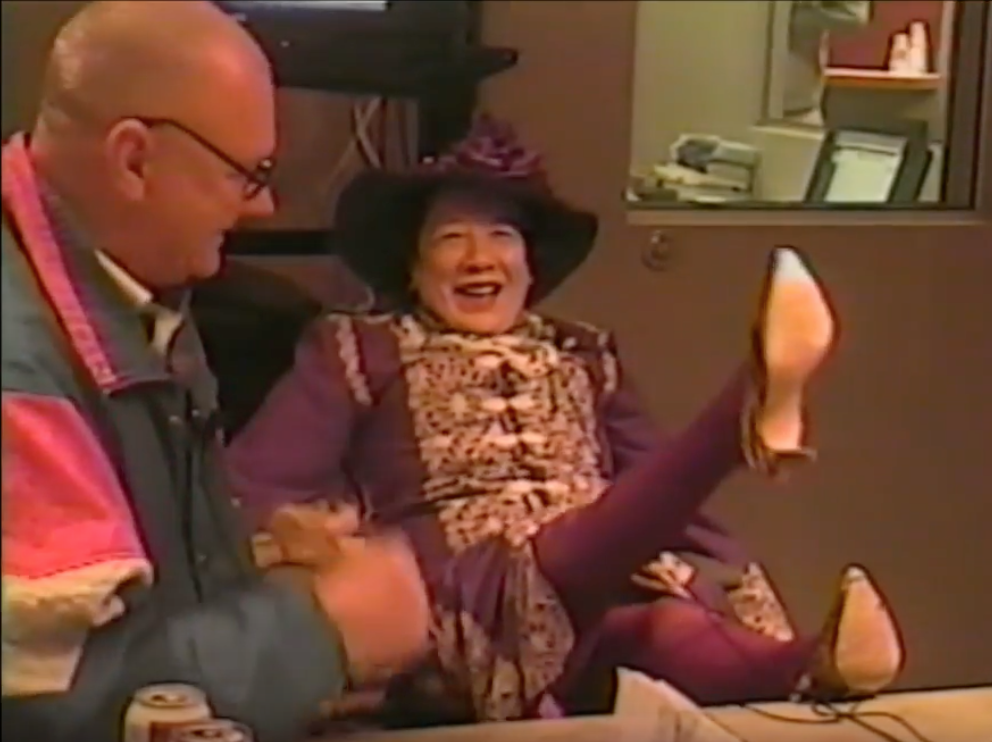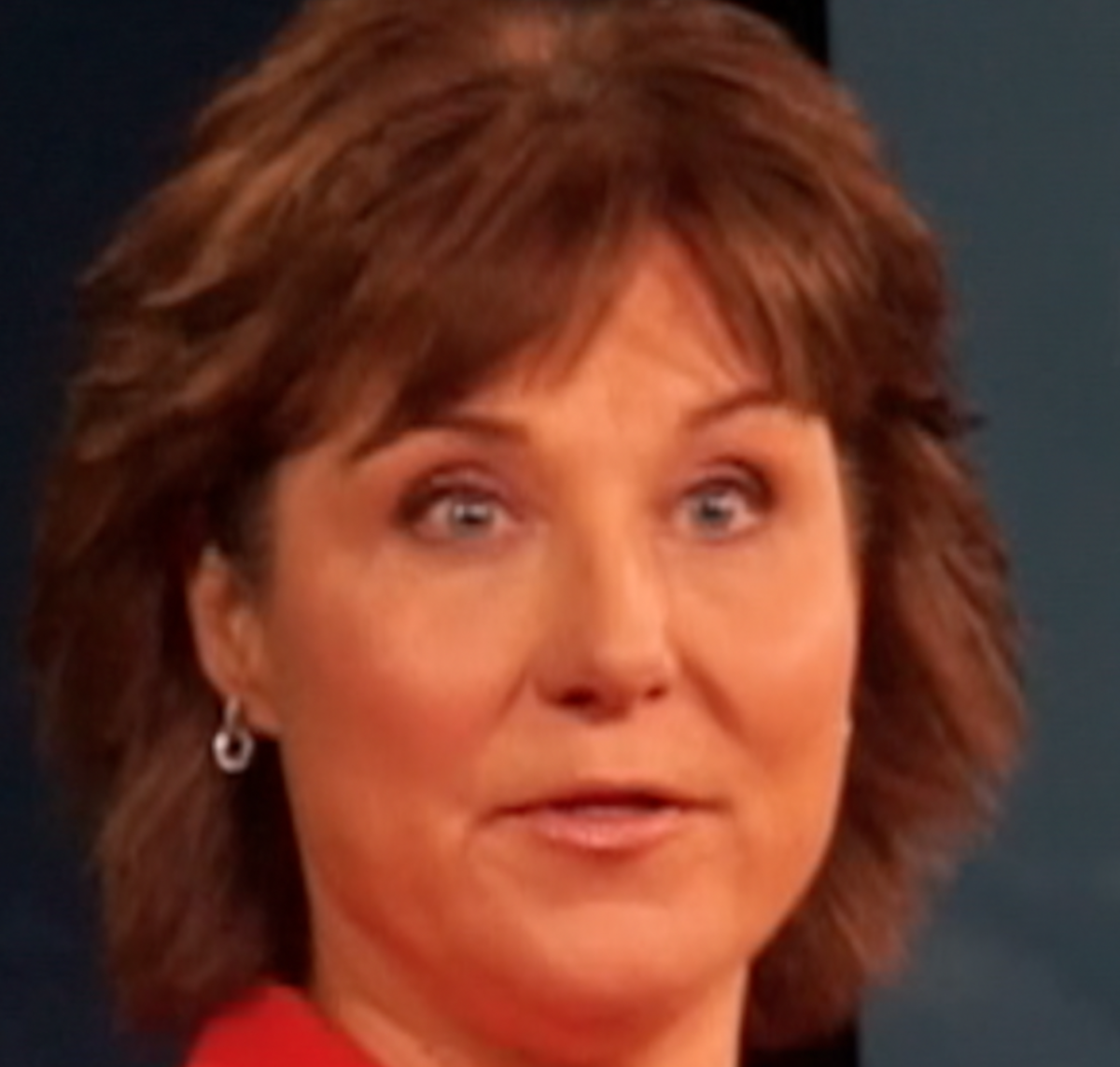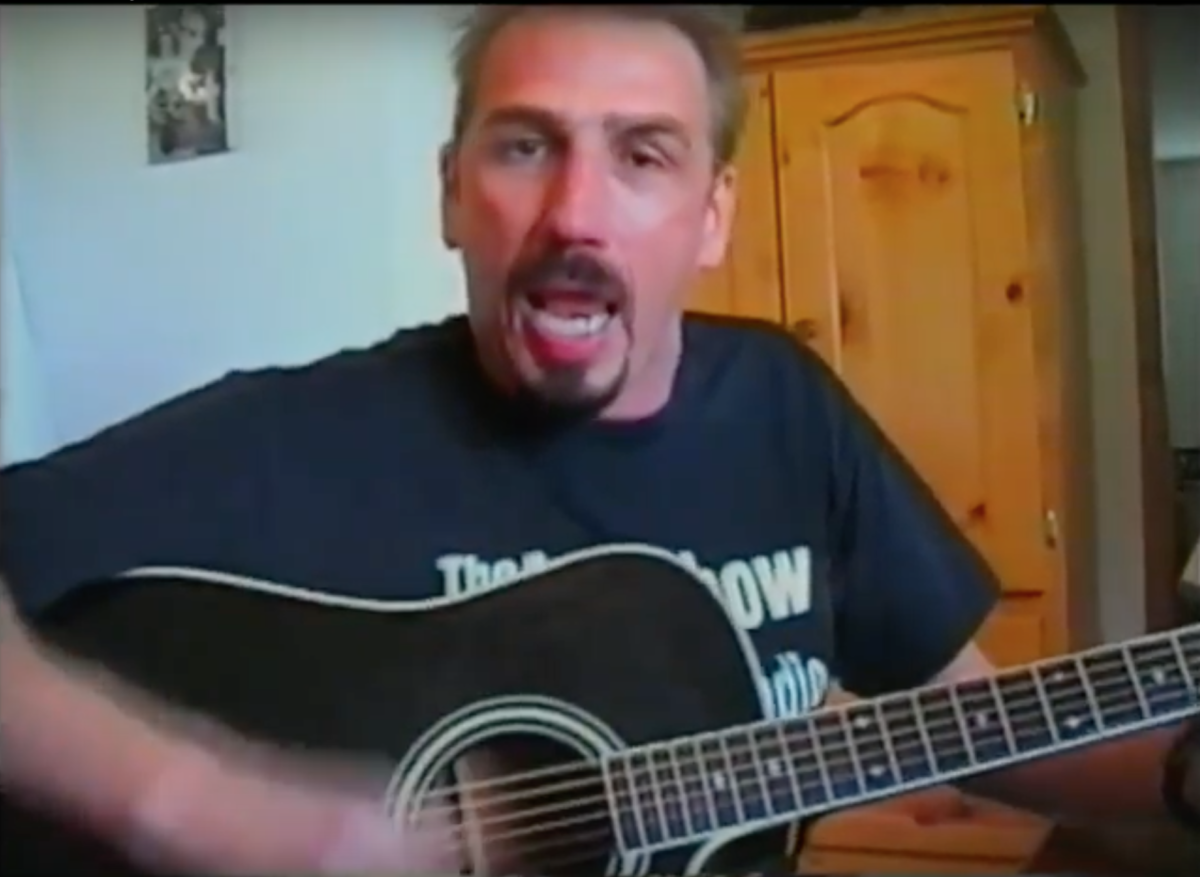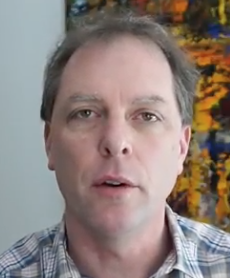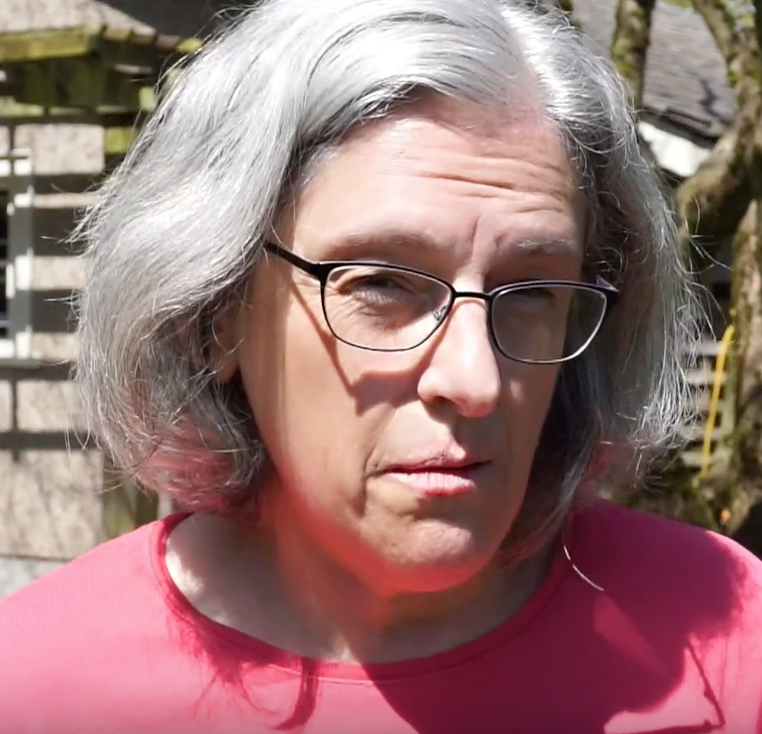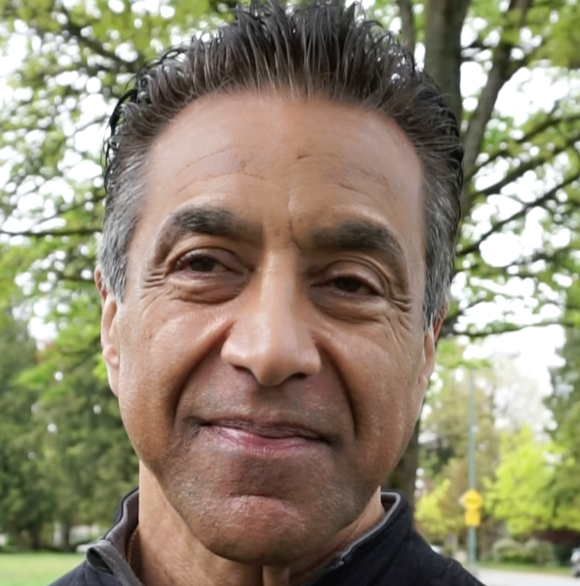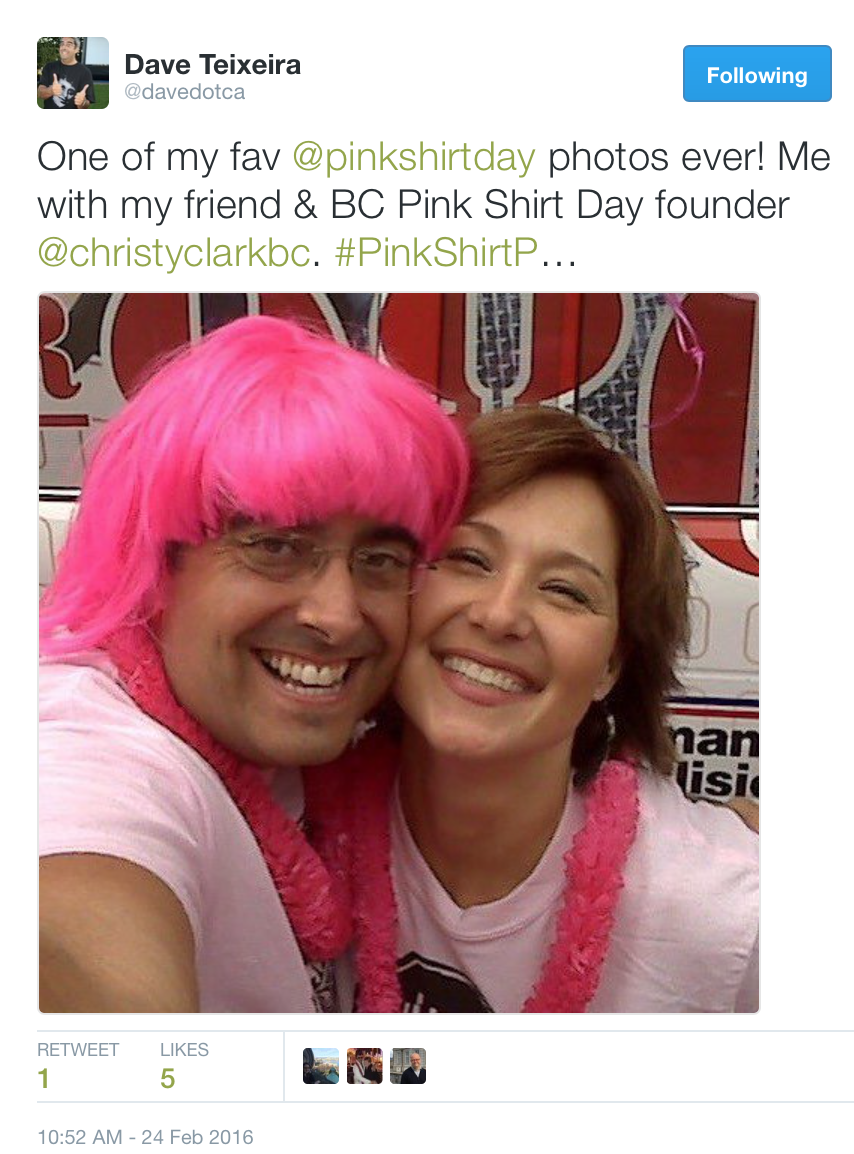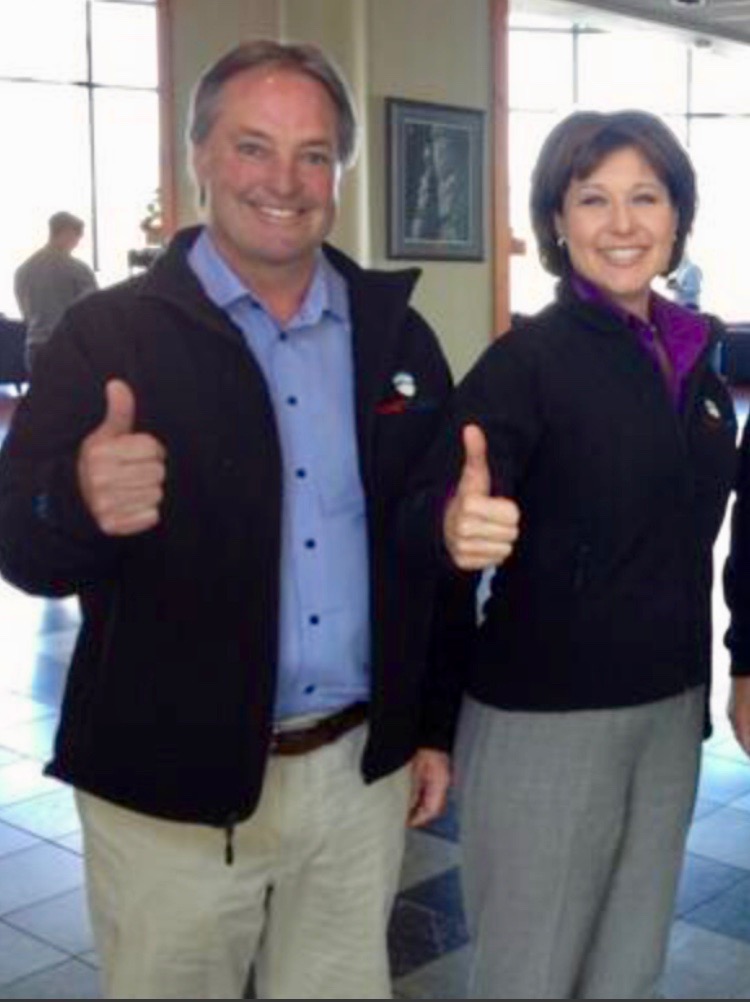Bob Mackin
Hands up if you’ve heard someone you know say they’ll stick with the status quo on May 9, because they prefer “the devil you know, versus the devil you don’t”?
Or, they’re “voting for the lesser of two evils”?
Hands up if that’s the way you intend to vote.
Do you reallly know the devil you’re talking about or what evil they’ve been up to for the last four years?
If you’ve been following coverage of provincial politics over the last four years, you are not a low-information voter and you know that British Columbians are not getting bang for their buck when it comes to good governance. The BC Liberals have been party first, people second, on a non-stop campaign to perpetuate their power and raise more money for campaigning than all other parties combined.
If they win the election today, they’ll have a fresh mandate to 2021 — that would be 20 years of the same party in office. No matter where you are on the political spectrum, it is never healthy in a democracy to become a one-party state, because the lines blur between party and government. The people suffer, while the cronies cash-in.
A Liberal loss on May 9 could be just what the doctor ordered for B.C. and the Liberals themselves. The centre-right coalition would be forced to find a new leader or face the departure of many members on the conservative side, who could form their own party. Diversity of opinion on the political spectrum is good for any democracy. B.C. has too few major party options.
The BC Liberals came to power 16 years ago next week, promising to make British Columbia the most open, accountable and democratic province in Canada. That hasn’t happened. On many counts, they’ve gone backwards.
Gordon Campbell’s New Era platform in 2001 contained that promise. The NDP in the 1990s had brought B.C. the Freedom of Information and Protection of Privacy Act. By the time they were finished, they watered down many of the measures, scared of letting out too much information. An informed populace is a dangerous thing on election day, for those who are hungry to stay in power for self-gain. Campbell didn’t get around to restoring the FOI laws, because he found it politically convenient to maintain secrecy. 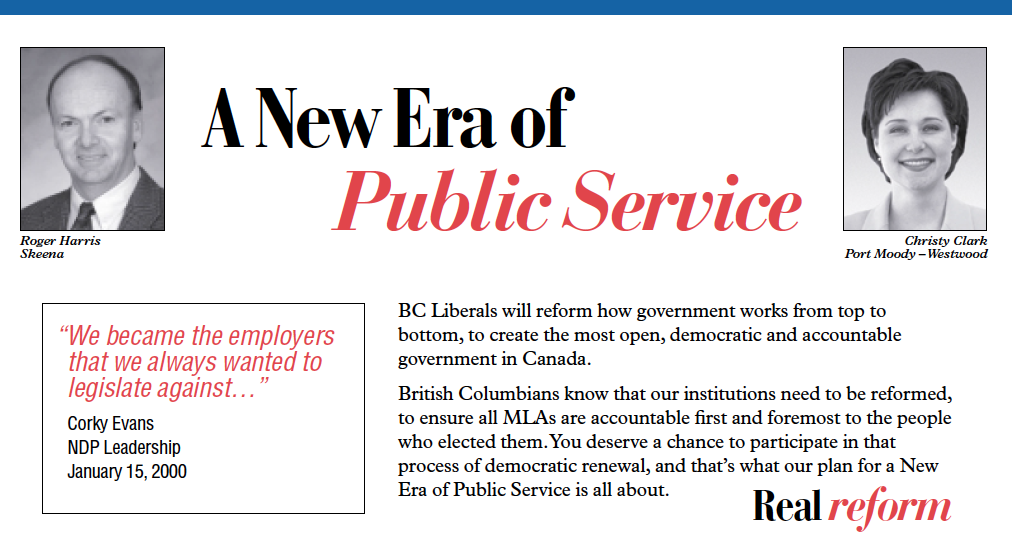
Secrecy can be addictive, especially in a system where there are no term limits, no donation limits, lobbying is under-regulated and archaic, top-down traditions are kept alive. Over the decades, power has been centralized in the Office of the Premier, who dictates the shots between elections.
The BC Liberals under Campbell and then Christy Clark took extreme measures to keep even their staunchest supporters from knowing and understanding what they do on taxpayers time with the taxpayers dime. Municipal governments are creatures of the provincial government, so the secrecy at your local city hall is partly the fault of the BC Liberals.
The chances of any democratic reform, to put more power in the hands of the people, under a re-elected Clark Liberal administration, are zero. How can you believe this party, which claims to be a prudent money manager, when it spends so much time, energy and your money to prevent you from knowing how much it really spends and how it awards contracts. It won’t show you or me the business case or cost-benefit analysis for the $3.5 billion (plus $8 billion interest) bridge to replace the Massey Tunnel, for example.
You wield a powerful weapon — a pencil on a slip of papter in a voting booth. If enough of you cast votes in one direction on May 9, the government will change. Peacefully. In other parts of the world, that is simply not possible.
The Greens and NDP have promised democratic reform. The upstart Your Political Party of B.C. has a platform that includes full proactive disclosure of government spending and contracting and an end to party discipline.
The NDP has the best shot at forming a new government. If John Horgan overcomes the big business and big media-supported BC Liberals and their big money, it will be up to diligent citizens and the media to hold Horgan to account.
Here are 10 ways the BC Liberals have tried to keep you from knowing.
1
Clark came to power in 2011 promising open government, but actually gave B.C. the most-secretive one it has ever had. B.C.’s Information and Privacy Commissioner found personnel in various offices, including Clark’s, were mass-deleting email to keep it out of the hands of anyone asking under the freedom of information law. The Clark administration was also running what was termed an “oral government,” making decisions but not documenting them. No records became two common words in letters to FOI applicants.
2
The story of the life and death of Paige Gauchier exposed systemic neglect that enraged many British Columbians, including the Representative for Children and Youth, who reported on the tragedy in May 2015. It took the government five months to respond. Someone in the Premier’s office decided that it would be a good idea to issue that response on 3 p.m. of the 2015 federal election day. An hour on a day when understaffed newsrooms across B.C. were focused on covering the federal election. A deliberate attempt to bury the news and keep the public from seeing the name and face of a young woman who deserved better from a government that looked like it didn’t give a damn.
3
The BC Liberals have had an uneasy relationship with statutory watchdogs and have not been afraid to meddle in their affairs, so as to prevent or mitigate risks to the party. Statutory watchdogs are supposed to be checks on power. The BC Liberals viewed them as bothersome and, sometimes, they even muzzled them.
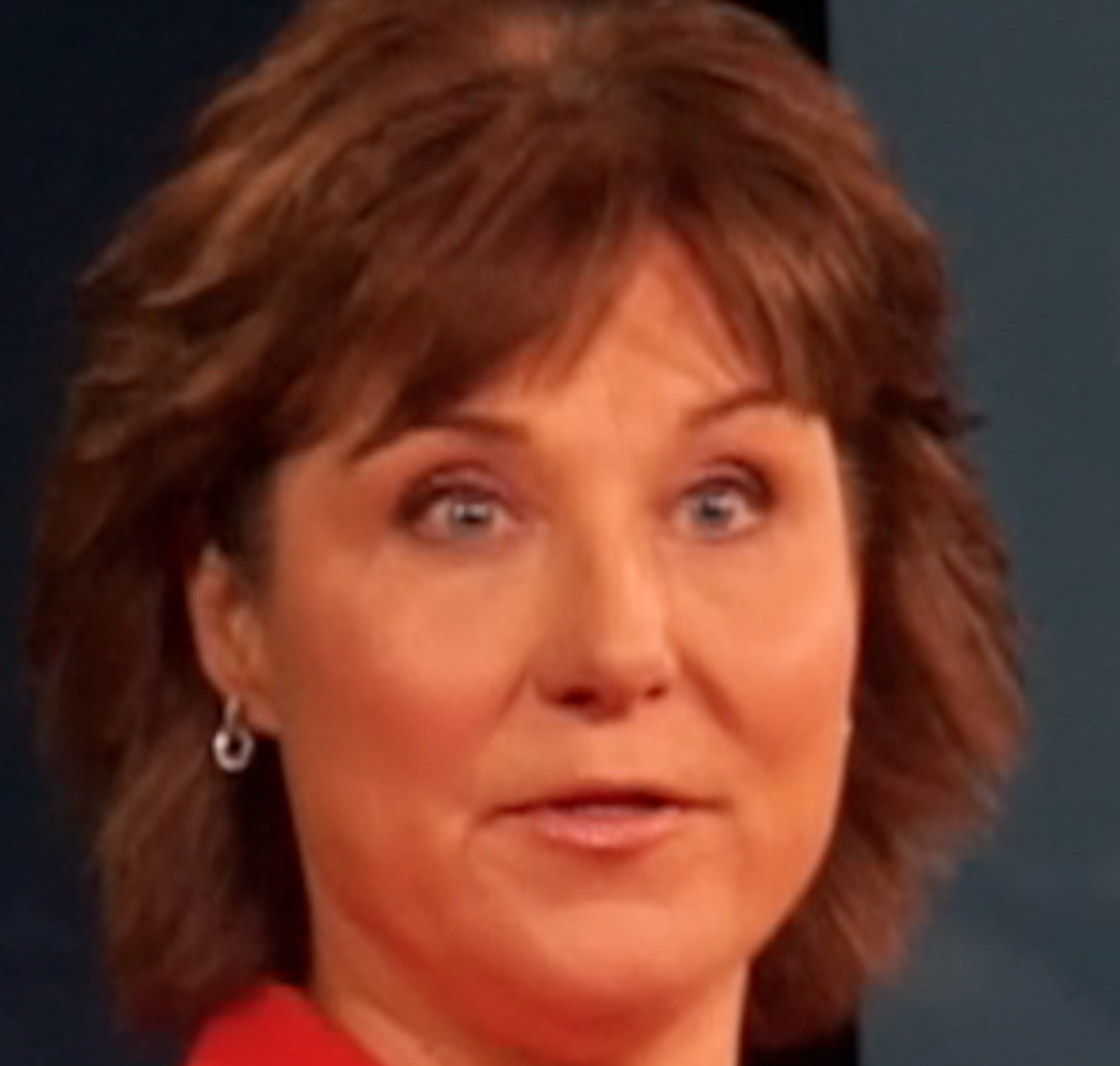
Christy cashes-in (Mackin)
4
The B.C. government invites reporters from the Lower Mainland to visit the Premier’s Vancouver Office at Canada Place whenever the budget is tabled or the province’s finances are updated quarterly. But it doesn’t want to hear their questions, lest they elicit an answer that doesn’t fit with the government’s propaganda narrative.
It used to be standard practice for the finance minister to take questions from the two-way speakerphone at the satellite location in Vancouver. Under Mike de Jong, the finance minister who says he doesn’t use email, that was kiboshed. Only reporters at the Legislature in Victoria get the chance to ask a question. The speakerphone is set to listen-only on the Vancouver side.
5
Christy Clark was an open line talkshow host from 2007 to 2010 on CKNW. She returned to the other side of the mic on a few occasions, as a guest, between 2011 and 2013, but made herself scarce and didn’t even bother to visit morning drive host Jon McComb during the 2017 election. Clark doesn’t do one-on-one, live radio with random callers anymore. It is all about controlling the message and reducing the chance of fielding a question that could expose the true Clark to voters. Part of controlling the message included the sycophantic biography of Clark written by the wife of a patronage appointee and published the year before the election.
6
The only file the Clark Liberals have succeeded on during their 2013 to 2017 term is liquor industry expansion via deregulation. Most government stores are open on Sundays and now have beer fridges. Craft breweries and distillleries have popped-up all over the place and some are glorified bars and stores. Some grocery stores even have a wine section, albeit B.C. only (just wait for the World Trade Organization to rule against this protectionist measure). Good things, if you like your hop and grape, eh? Too bad the prices were hiked.
Booze releases have become a cliche — used strategically by the government to distract the press and the public from more important things, like the state of schools and hospitals, or the occasional scandal.
7
Every year, on the last Wednesday of February, Christy Clark dons a pink shirt, poses for photos and says bullying in schools and workplaces is bad. Who can disagree? But, the rest of the year, she has kept an archaic system of governing alive and well. Party discipline means that MLAs must toe the line set by Clark’s office, instead of side with their constituents. You may think you’re voting for someone to represent you in Victoria, but you’re voting for the leader’s local representative. Sean Holman told this story in the 2013 documentary, Whipped.
Analysis of voting records shows this is true.
8
The Clark Liberals cancelled the Legislature sitting last fall, so they could go on taxpayer-funded offshore junkets and continue to raise money for the party’s campaign — even after telling their own members last September they had enough to fight and win in 2017. Why did they resist calls to enact checks and balances? Of course, power before people. They raised another $5.2 million before the end of April 2017; they already have more than a down payment on their 2021 election campaign. They also have many donors who feel they’re owed attention or worse: favours.
9
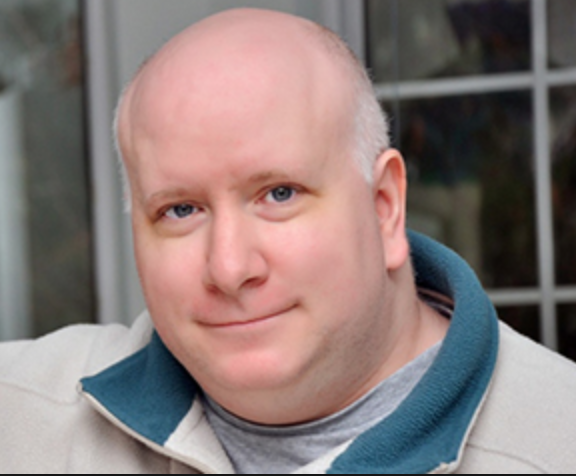
Late Roderick MacIsaac, one of the health researchers wrongly fired.
Imagine a government that preaches spending control and then turns around, goes out and hires friends of the premier to create a year-and-a-half-long ad campaign to polish the image of the government before the election. That’s exactly what the BC Liberals did under Clark, who attacked the NDP for doing the same on a lower budget in 1999. The total bill to taxpayers for the last two years of propaganda may be as much as $30 million.
10
In summer 2015, the Clark Liberals had a bright idea. They were shellshocked from the headlines about the bungled 2012 firing of eight health researchers. One of them, Roderick MacIsaac, died of suicide.
There were calls for a public inquiry. Scared of letting all that dirty laundry out, the Clark Liberals decided on an innovative scheme. Send it to the Ombudsperson for a closed-door investigation. It’d be done away from the public eye. The office had never done such an investigation. The central FOI office was shifted to de Jong’s control and Clark’s closest confidante and political ally since the 1990s, Athana Mentzelopoulos, was named his deputy minister. Good luck for it to be done before the election, the government thought.
For once, it was wrong.
The report, titled Misfire, exposed the depth and the breadth of the evil that went on under Clark and de Jong’s watch.
Don’t vote for what you think is the least worst. You’re a citizen, you deserve better.
Bob Mackin
Hands up if you’ve heard someone
